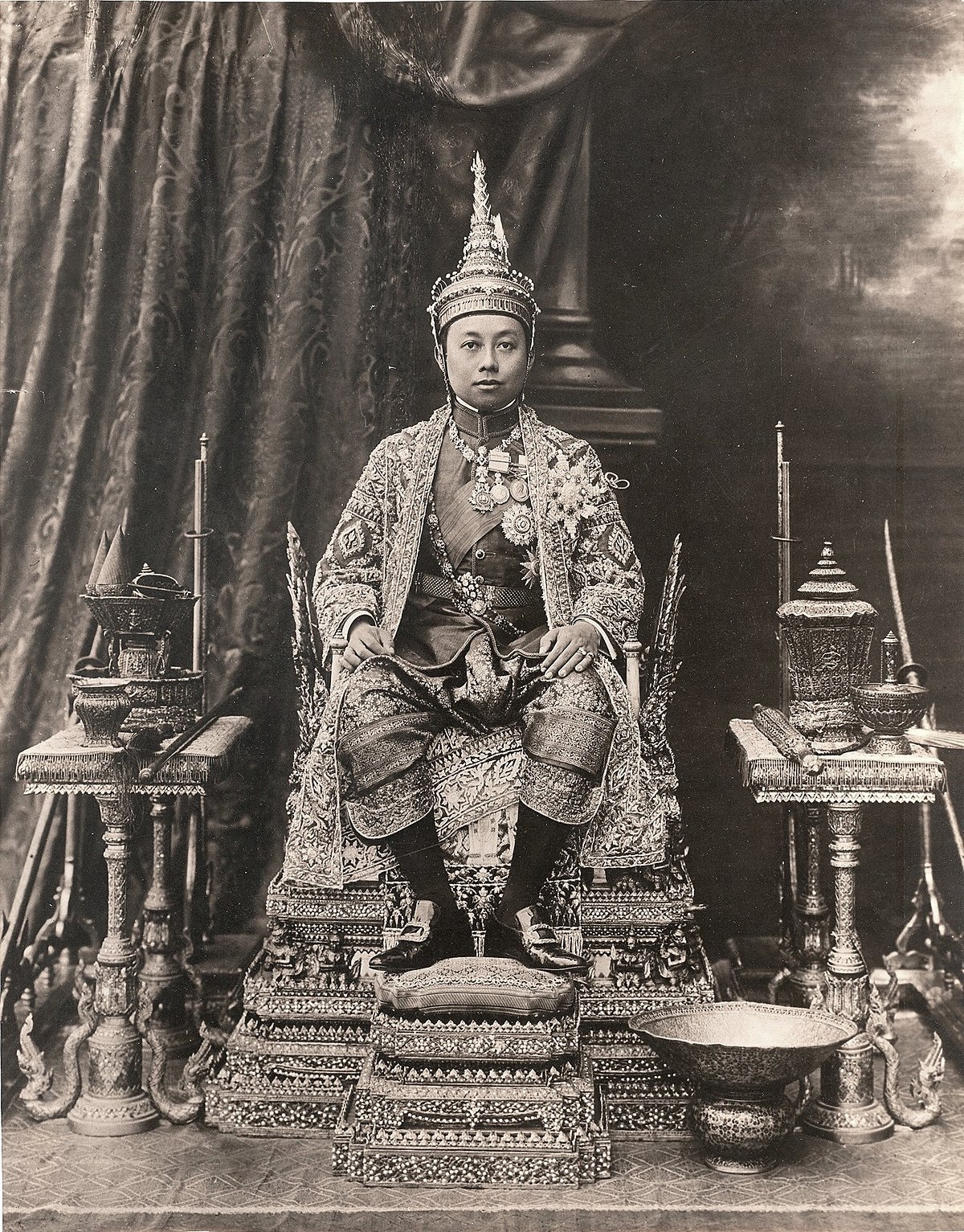
Nation formation under Vajiravudh and Prajadhipok
ThailandThe successor of King Chulalongkorn was King Rama VI in October 1910, better known as Vajiravudh. He had studied law and history at the University of Oxford as the Siamese crown prince in Great Britain. After his ascension to the throne, he forgave important officials for his devoted friends, who were not part of the nobility, and even less qualified than their predecessors, an action which had hitherto been unprecedented in Siam. In his reign (1910–1925) many changes were made, which brought Siam closer to modern countries. For example, the Gregorian Calendar was introduced, all the citizens of his country had to accept Family names, women were encouraged to wear skirts and long hair fringements and a citizenship law, Principle of the "Ius sanguinis" was adopted. In 1917 the Chulalongkorn University was founded and school education was introduced for all 7 to 14-year-olds.
King Vajiravudh was a favour of literature, theatre, he translated many foreign literatures into Thai. He created the spiritual foundation for a kind of Thai nationalism, a phenomenon unknown in Siam. He was based on the unity of nation, Buddhism, and kingship, and demanded loyalty from his subjects to all these three institutions. King Vajiravudh also took refuge in an irrational and contradictory anti-Sinicism. As a result of the mass immigration, in contrast to previous immigration waves from China, women and entire families had also come into the country, which meant that the Chinese were less assimilated and retained their cultural independence. In an article published by King Vajiravudh under a pseudonym, he described the Chinese minority as Jews of the East.
In 1912, a Palace revolt, plotted by young military officers, tried unsuccessfully to overthrow and replace the king.[61] Their goals were to change the system of government, overthrowing the ancien régime and replacing it with a modern, Westernised constitutional system, and perhaps to replace Rama VI with a prince more sympathetic to their beliefs,[62] but the king went against the conspirators, and sentenced many of them to long prison sentences. The members of the conspiracy consisted of military and the navy, the status of the monarchy, had become challenged.
